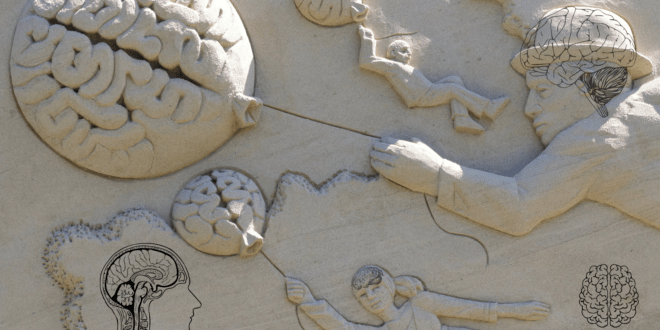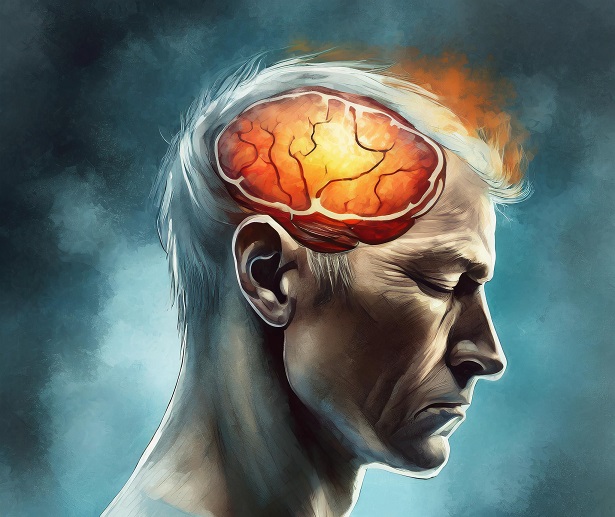A New Study Reveals How Our Brain Reacts To Unexpected Results.
According to a new MIT study, when your brain wants you to pay attention to something essential, it sends a surge of noradrenaline. The locus coeruleus, a deep brain area that produces this neuromodulator, has far-reaching effects across the brain. In a mouse study, the MIT team revealed that noradrenaline, also known as norepinephrine, plays a key role in helping the brain learn from unexpected situations.
This study shows that the locus coeruleus encodes unexpected events and that paying attention to these unexpected events is necessary for the brain to appraise its surroundings, according to Mriganka Sur, the Newton Professor of Neuroscience and principal author.
In addition to assisting in the stimulation of conduct that leads to a reward, the researchers discovered that noradrenaline aids in the stimulation of behavior that leads to a reward, especially when the incentive is uncertain.
Behavioral change
Noradrenaline is one of the several neuromodulators that affect the brain, along with dopamine, serotonin, and acetylcholine. Unlike neurotransmitters, which allow cell-to-cell communication, neuromodulators are released across large areas of the brain, allowing them to have larger effects.
“Neuromodulatory chemicals are assumed to perfuse huge portions of the brain, thereby altering the excitatory or inhibitory drive that neurons receive in a more point-to-point fashion,” the main author explains.
“This implies that they must have very critical brain-wide activities for survival and brain state regulation.”
While much has been gained about the role of dopamine in motivation and reward-seeking, little is known about other neuromodulators like noradrenaline. Too much noradrenaline can create anxiety, despite the fact that it has been linked to greater arousal and alertness.
The previous study has shown that the locus coeruleus, the brain’s primary noradrenaline producer, receives input from a variety of brain locations and disseminates its messages widely. In the latest study, MIT researchers looked into its participation in a sort of learning known as reinforcement learning or learning by trial and error.
For this study, the mice were taught to press a lever when they heard a high-frequency tone but not when they heard a low-frequency tone. If the mice responded appropriately to the high-frequency tone, they received water, but an unpleasant puff of air if they pressed the lever when a low-frequency tone was heard.
When greater tones were heard, the mice learned to put more power on the lever. They were undecided on whether or not to push when the volume was reduced. When the researchers lowered locus coeruleus activity, the mice became much more cautious to press the lever when they heard low-volume tones, implying that noradrenaline encourages taking a chance on obtaining a reward in situations where the payoff is uncertain.
“The locus coeruleus transmits vital signals that indicate, “Push now because the reward is on the way,” to the animal when it pushes in order to receive a reward.,'” says Sur.
The researchers also revealed that the neurons that create the noradrenaline signal appear to send the majority of their output to the motor cortex, supporting the theory that this signal stimulates animals to act.
Expressing surprise
While the initial burst of noradrenaline appears to drive the mice to act, the researchers noticed that a second burst occurs frequently after the trial has ended. When the mice received an expected reward, these spikes were small. The bursts were significantly bigger when the trial’s conclusion was unexpected. When a mouse was given a blast of air instead of the reward it expected, the locus coeruleus released a powerful burst of noradrenaline.
If that mouse didn’t know it would earn a reward in the following trials, it would be significantly less likely to push the lever.
It is altering its behavior based on what it has recently done, despite the fact that it has already learned the task.”
The mice also demonstrated surges of noradrenaline when they were given an unexpected treat. During these bursts, noradrenaline appeared to diffuse to many parts of the brain, including the prefrontal cortex, which is where planning and other higher cognitive functions occur.
Sur adds, “The locus coeruleus’s surprise-encoding function appears to be considerably more ubiquitous in the brain, which may make sense given everything we do is tempered by surprise.”
The researchers are currently investigating whether noradrenaline and other neuromodulators, such as dopamine, can work together to respond to unexpected rewards. They also want to know how the prefrontal cortex keeps the locus coeruleus’ short-term memory so they can help the animals do better in future trials.
How to live a happy life?
Author: Muhammad Asim
 Shalkot The Innovators
Shalkot The Innovators





This is a very interesting study. I wonder if it fully apply to human brains also.